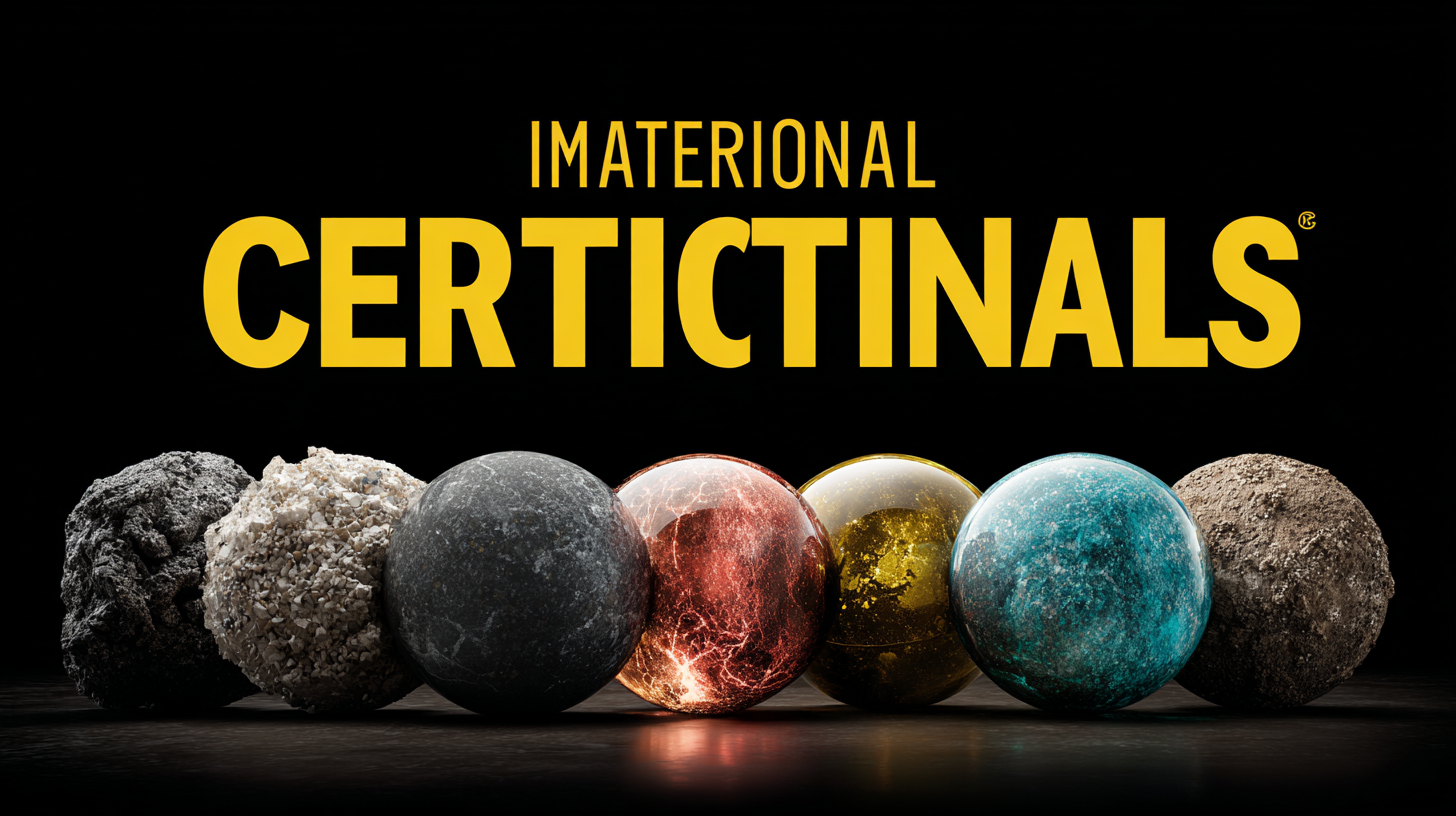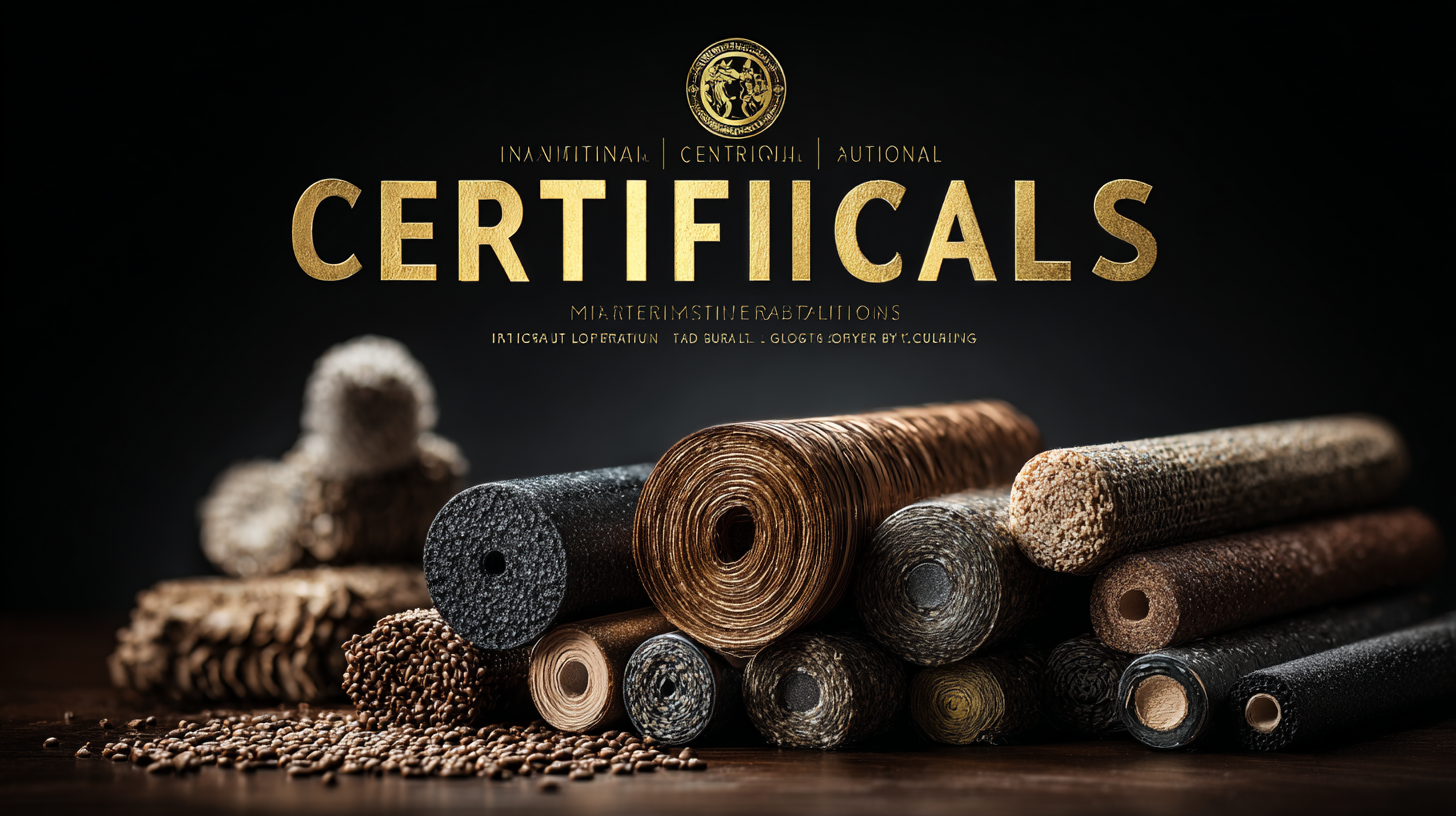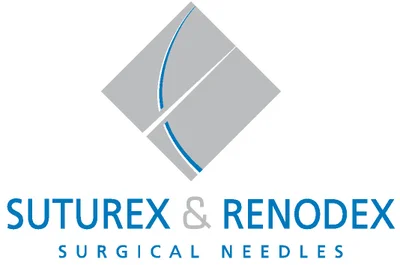You have successfully logged out.
Navigating International Certification for Best Surgery Materials: A Comprehensive Guide for Global Buyers
In the ever-evolving landscape of healthcare, the demand for high-quality Surgery Materials has reached unprecedented levels. According to a recent report by Research and Markets, the global surgical instruments market is projected to surpass $12 billion by 2026, highlighting a significant opportunity for international buyers seeking reliable suppliers. As countries continue to uphold stringent safety and quality standards, navigating the complexities of international certification becomes crucial.

This comprehensive guide aims to equip global buyers with essential knowledge, emphasizing the importance of sourcing surgical materials from reputable manufacturers. "卓越制造,源自中国,服务全球" underscores the commitment to excellence in manufacturing that has positioned China as a leading player in the global market, ensuring that healthcare providers around the world can access top-tier surgical solutions.
Understanding the Importance of International Certification in Surgical Materials
When it comes to surgical procedures, the importance of using certified materials cannot be overstated. International certification serves as a crucial indicator of quality and safety, ensuring that surgical products meet stringent global standards. For healthcare professionals and institutions, this certification is not just a tag; it reflects a commitment to providing the best possible care to patients. By utilizing certified surgical materials, buyers can mitigate risks associated with inferior or substandard products, which can lead to complications during and after surgery.
Moreover, the complexities of navigating various regulatory environments make international certification even more vital. Different countries have different criteria for medical materials, and without clear certification, buyers may find themselves overwhelmed by the compliance landscape. Understanding the certification process not only streamlines procurement but also builds trust between suppliers and healthcare providers. Ultimately, prioritizing internationally certified surgical materials underscores a dedication to patient safety and the integrity of medical practices worldwide.
Navigating International Certification for Best Surgery Materials: A Comprehensive Guide for Global Buyers
| Certification Body | Certification Type | Region | Valid Duration | Key Requirements |
|---|---|---|---|---|
| ISO 13485 | Quality Management System | Global | 3 Years | Document control, Management responsibility, Resource management |
| CE Marking | Conformity Assessment | European Union | Indefinite, with regular audits | Safety, Health, Environmental protection, Compliance with EU directives |
| FDA Approval | Market Authorization | United States | Varies by product | Clinical trials, Manufacturing compliance, Safety and effectiveness data |
| TGA Approval | Therapeutic Goods Administration | Australia | Varies by product | Quality assurance, Benefit-risk assessment, Labeling requirements |
Key Certification Bodies and Their Roles in the Healthcare Industry
Certification plays a pivotal role in assuring the quality and safety of surgical materials used globally. Key certification bodies such as the International Organization for Standardization (ISO) and the American National Standards Institute (ANSI) establish rigorous guidelines that healthcare products must meet to ensure efficacy and safety. According to a recent industry report, over 60% of healthcare professionals cite certification as a critical factor when selecting surgical materials, underscoring the importance of these bodies in maintaining high industry standards.

As technology evolves, new standards like ISO/IEC 42001 are emerging to address the governance of artificial intelligence in healthcare. This standard aims to provide a framework for managing AI technology in a way that prioritizes patient safety and ethical considerations. AI applications in surgery, such as predictive analytics and robotic surgical systems, are increasingly prevalent, with market research indicating a projected growth of 30% annually in AI-driven medical technologies. In this dynamic landscape, understanding the roles of certification organizations becomes essential for global buyers seeking to navigate compliance and ensure the quality of surgical materials.
Navigating Compliance: Essential Standards for Surgical Material Quality
When it comes to sourcing surgical materials for global use, understanding compliance with essential standards is paramount. The medical device industry is governed by strict regulations that ensure the safety, efficacy, and quality of surgical materials. Buyers must familiarize themselves with international standards such as ISO 13485 and ISO 9001, which outline the quality management systems necessary for medical products. These certifications are not merely bureaucratic hurdles; they signify that the manufacturer adheres to rigorous processes that minimize risks associated with surgical procedures.
In addition to ISO standards, buyers should take note of regional compliance requirements like the FDA regulations in the United States or the CE marking in Europe. Each of these certifications has its own set of guidelines concerning material biocompatibility, sterility, and performance. It's crucial for global buyers to work with suppliers who not only meet these standards but also facilitate transparent communication throughout the sourcing process. This ensures that all surgical materials procured are compliant and instills confidence in their ultimate application in patient care.
Challenges Faced by Global Buyers in Sourcing Certified Surgical Materials
Global buyers face numerous challenges when sourcing certified surgical materials, particularly given the diverse regulatory requirements across countries. According to a recent report by the Global Healthcare Certification Alliance, about 70% of buyers experience difficulties in navigating these regulations, leading to delays and increased costs. With stringent compliance standards, it can be daunting for buyers to identify vendors who meet the necessary certification criteria, as certifications can vary widely between regions.
Tip: When sourcing surgical materials, always verify the certification status of your suppliers. Utilize databases and networks such as the International Organization for Standardization (ISO) to ensure your partners have the required certifications.
Moreover, the fluctuating geopolitical landscape further complicates the procurement process, as tariffs and trade restrictions can disrupt supply chains. A survey by the Healthcare Procurement Association indicated that 56% of global medical supply buyers report supply chain disruptions affecting their ability to obtain certified materials on time.
Tip: Establish strong relationships with multiple suppliers across different regions to mitigate risks associated with potential disruptions.
By understanding these challenges and tips, global buyers can more effectively navigate the complexities of sourcing certified surgical materials while ensuring compliance and steady supply.
Navigating International Certification for Best Surgery Materials
Future Trends in International Certification for Surgical Supplies by 2025
As the global demand for high-quality surgical supplies continues to rise, understanding the future trends in international certification becomes paramount for buyers. By 2025, we expect significant advancements in certification processes that will enhance supply chain transparency. Regulatory bodies are leaning towards a more unified approach, which could streamline the certification process across different regions. This unification will not only facilitate easier access to compliant materials but also promote a higher standard of safety and efficacy for surgical products worldwide.

Moreover, technological innovations, such as blockchain and AI, are set to revolutionize the way surgical supplies are certified and tracked. These technologies can provide real-time data verification, ensuring that materials meet international safety standards before they reach healthcare providers. As buyers become increasingly aware of the importance of traceability, they will look for certifications that leverage these technologies, fostering a culture of accountability within the industry. By staying informed and adapting to these trends, global buyers can make better purchasing decisions, ultimately leading to improved patient outcomes.
